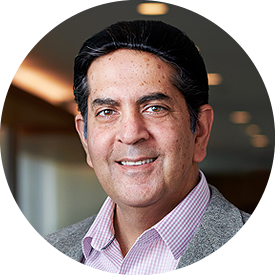Editors note: Original publish date: Mar 12, 2024- Updated on June 1, 2024
After a kidney transplant, previous food restrictions you experienced when on dialysis are no longer required. The main goal of your post-transplant diet is to help fight infection, maintain muscle strength, and provide your body with the nutrients and minerals it needs to heal.
Key Points
- After a kidney transplant, a specialized diet is needed as your nutritional needs have changed.
- Safe food practices are essential to avoid foodborne illness, as your immune system has been lowered.
Kidney Transplant Overview
A kidney transplant is a surgery that replaces a diseased kidney with a healthy kidney from a living or deceased donor. A living transplant often comes from a family member who is a match and healthy enough to donate a kidney. People who donate a kidney can live an everyday and healthy life with only one kidney.
A kidney transplant is often the preferred treatment for those with kidney failure or end-stage kidney disease (ESKD). The person getting a kidney transplant gets one kidney, although in rare cases, they may get two kidneys from a deceased donor. The new (transplanted) kidney is placed on the front side of the lower belly.
What is done to prevent rejection of a kidney transplant?
Rejection of the kidney transplant is a significant complication that can occur after transplantation surgery. The recipient sees the ” donor ” kidney as a “foreign body,” meaning your body will try to protect itself by attacking the new kidney. To ensure that organ rejection doesn’t happen, the anti-rejection medication will need to be taken exactly as prescribed.
Some common anti-rejection (immunosuppressant) medications include:
- Steroids (prednisone)
- Sirolimus (Rapamune)
- Mycophenolate (CellCept)
- Cyclosporine (Sandimmune, Gengraf, Neoral)
- Azathioprine (Imuran)
- Tacrolimus (Prograf)
A healthy, balanced diet can also help prevent high blood sugar, high blood pressure, and excess weight gain.
Kidney Transplant Diet
This information is not intended to treat individuals. Consult with your transplant team, nephrologist, or kidney dietician about your kidney transplant diet and long-term nutritional care.
After a kidney transplant, you will need a special diet to help fight infection, heal surgery wounds, and maintain muscle strength, giving your transplant the best chance of being successful. The following nutrients and minerals are vital to recovering from your kidney transplant:
Potassium
Potassium is an essential nutrient and electrolyte. Some transplant medicines can increase or decrease the level of potassium in the blood. To make sure the new kidney can filter out excess potassium from the medications, potassium will be limited for 4-6 weeks until it is established that the transplant works well.
Salt/sodium
Certain transplant medications, such as steroids, retain (hold on) sodium and water, which causes high blood pressure, swelling, or edema. Thus, monitoring and limiting the amount of sodium and salt in your diet is crucial. Your transplant team will advise how much sodium or salt you can consume daily.
Phosphorus
Phosphorus is an essential mineral needed in the diet after transplant. After stopping your phosphate binders, a high-phosphorus diet will be recommended. As the new kidney begins to work, the body is able to rebuild and maintain bone. Depending on your phosphorus levels, your nephrologist may give you pills to increase them.
Calcium
Calcium is an essential nutrient that helps the bones and teeth stay strong. Steroids that transplant patients need may inhibit the body’s ability to absorb calcium. Eating dairy or calcium-fortified foods will help reduce the risk of bone fractures after a kidney transplant.
Magnesium and Phosphorous
Some transplant medications can reduce phosphorous and magnesium, both essential minerals. In some cases, the transplant team will prescribe pills to improve these levels.
How much protein should a kidney transplant eat?
Protein is an essential nutrient that builds and repairs tissues and muscles and helps the body heal after a transplant operation. Right after a kidney transplant, protein intake may need to be higher than usually recommended. This is to help repair and build up the muscle tissue broken down by the doses of steroids you need. Your transplant team or kidney dietician will determine when you can return to moderate amounts of protein.
What foods are good for kidney transplant patients?
It is important to cook all animal foods to the proper temperature to prevent foodborne illnesses that may cause organ rejection. Some foods that are good for kidney transplant health but not limited to:
Protein:
- Eggs
- Meat, poultry (chicken, turkey) and fresh fish
- Dried beans, peas, tofu, lentils
- Water-packed tuna
- Dairy products (milk, dairy, cheese)
- Nuts and seeds
- Protein drinks
Potassium:
- Diary (milk, yogurt)
- Fruit (mango, avocado, melons, prunes, tomatoes)
- Vegetables (squash, broccoli, beets, beans)/
- Dark leafy greens (spinach, kale)
- Nutritional supplements (Ensure, Glucerna)
Magnesium:
- Beans and peas
- Whole grain cereals and bran
- Whole grains
- Fish and other seafood
- Quinoa
- Nuts and seeds
- Fruits (avocado, bananas)
- Vegetables (corn, potatoes, spinach)
Phosphorus:
- Bran cereal
- Dairy products
- Split peas
- Lentils
- Meat, poultry, pork
- Fish
- Dried beans
- Soy and soy products
Calcium:
- Milk
- Yogurt
- Cheese
- Salmon
- Broccoli
- Collard greens
- Kale
- Soy or almond milk (fortified with calcium)
- Sesame seeds
Foods to Avoid After a Kidney Transplant
After your kidney transplantation, the anti-rejection medications can also weaken your body’s ability to fight infection. Some bacterial infections can be picked up from foods, so it is crucial to avoid eating spoiled foods that have visible mold or are past their “use by” date.
We have created a general list of foods to avoid if you are a kidney transplant patient. Your transplant team will advise which foods you should specifically avoid after your kidney transplant.
Fruits and vegetables to avoid after a kidney transplant:
- Sprouts such as bean sprouts or alfalfa
- Unwashed fruits and damaged (split) fruits
- Unpasteurized (raw) ciders and juices
- Salad from delis, salad bars, restaurants, etc
- Grapefruit, pomegranate, or grapefruit and pomegranate juice, especially if you are taking prograf or cyclosporine (immunosuppressive medicines)
Dairy products:
- Undercooked or uncooked eggs or any egg-containing products
- Unpasteurized (raw) yogurt, milk, or cheese
Raw or undercooked Meat, fish, and poultry:
- Crab
- Squid
- Meat, poultry, or fish
- Prawns or shrimp
- Sushi
- Clams, mussels, oysters
- Crayfish
Limit foods high in salt, such as:
- Cured meats (bacon, sausage and ham)
- Lunch meats
- Ramen noodles, rice and potato mixes, and boxed noodles
- Canned pasta sauces and soups
- Snack foods (salted chips, popcorn, pretzels, and salted nuts)
- Pickled foods
- Pre-packaged frozen meals
Talk to your transplant team or registered dietitian if you have questions about foods that should be avoided after your kidney transplant.
Food Safety Post-Transplant
The most important thing besides taking your anti-rejection medications (immunosuppressants) exactly as prescribed is practicing food safety. Food safety aims to reduce the risks of picking up foodborne illnesses such as food poisoning that can make you sick.
Tips for practicing food safety include:
- Washing your hands before eating or preparing food
- Washing all fruit and vegetables
- Ensure that your water quality is safe by installing a filter or boiling it for at least 1 minute.
- Avoid cross-contamination (use separate cutting boards for preparing different types of food)
- Cook your foods to a safe temperature
- Do not consume drinks or food that is unpasteurized
- Refrigerate and freeze your food appropriately.
The USDA’s Food Safety Guide for people at risk has more information about food safety essentials for after your kidney transplant.
Panoramic Health
Panoramic Health is an integrated provider group delivering the future of kidney care. Our mission is to improve patients’ outcomes by slowing disease progression and improving their quality of life. We do this through the distinctive capabilities of our comprehensive care model, which brings together an integrated provider group with operational support, clinical support, and data & analytics at scale.
Through partnerships with practices, providers, payers, and health systems, we work to advance the usage of clinically validated best practices and cutting-edge data analytics across a continuum of reimbursement models.
*The content presented in this article is for informational use only and should not be construed as medical advice or replace the medical advice of a qualified physician or renal dietician.















